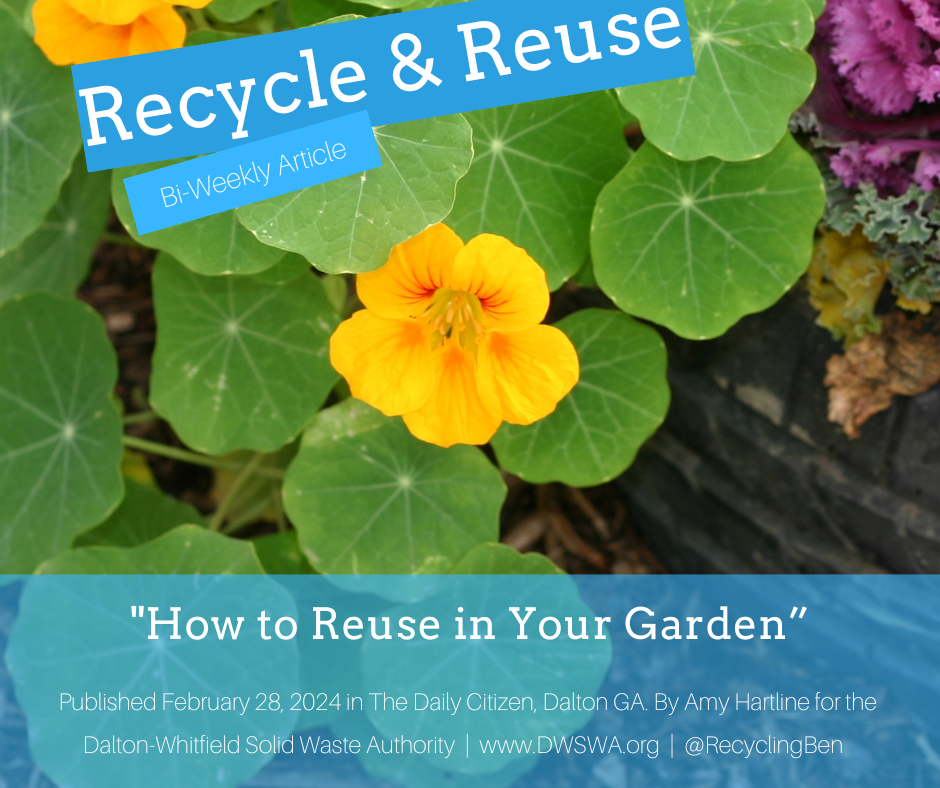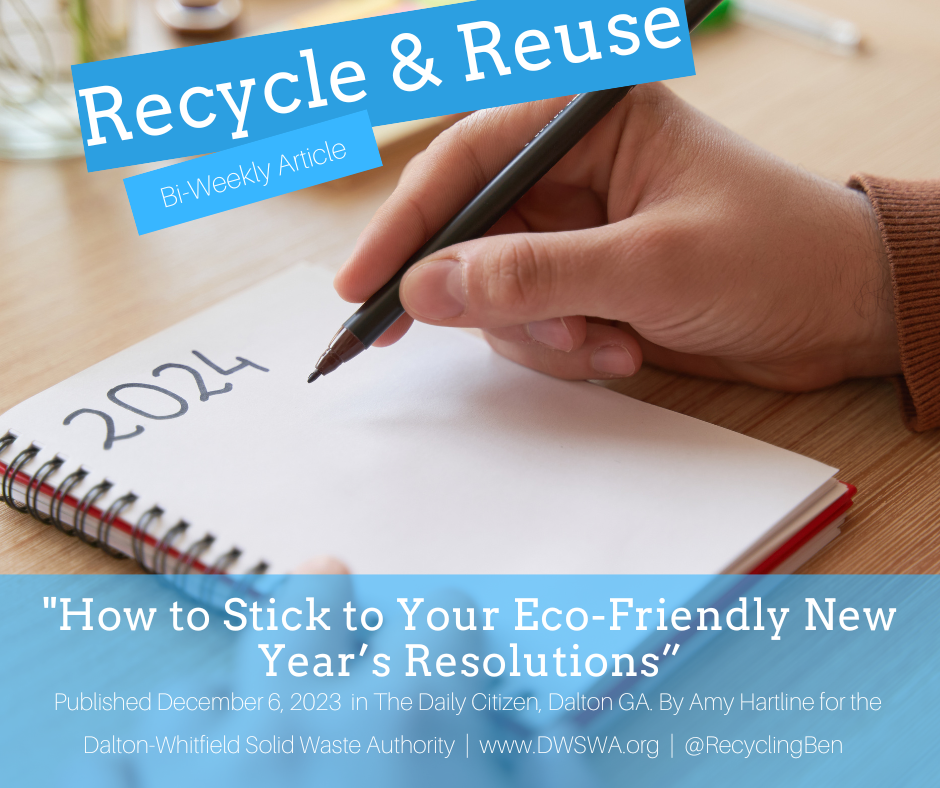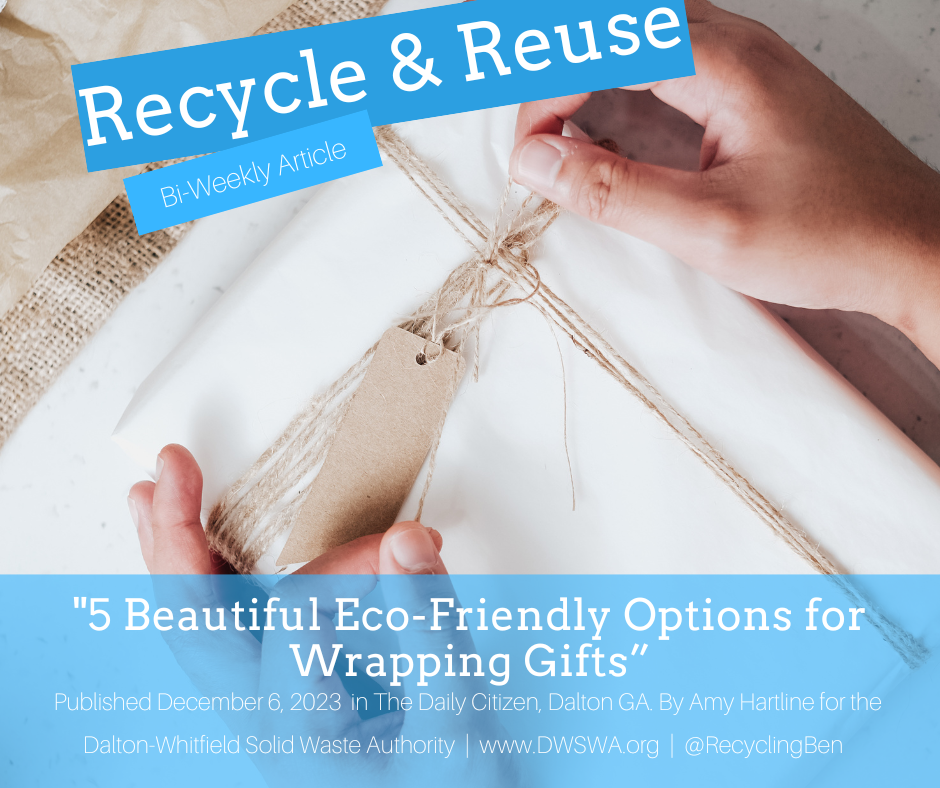Celebrating National Wildlife Week 2017
/A white-breasted nuthatch enjoys birdseed left outside in a home garden area. Providing food and water to birds in your own backyard is an excellent way to support wildlife this week.
Living in a highly populated area makes it easy to forget that there is wildlife all around us every day. In the early morning hours on my way to the office I may spot a brown rabbit or even a deer. Summers are filled with squirrel and turtle sightings, not to mention all the different types of birds. Occasionally a barn owl will be heard from a distance as the sun is setting and small brown bats are emerging from their hiding place. Sometimes I’ll see a kettle of vultures circling above. And there was that one time I saw a young black bear crossing the road on my way to Ellijay.
This week the National Wildlife Federation (NWF) invites us to work together to learn more about and support local wildlife during National Wildlife Week. The theme for this year is a tournament showcasing 32 animals native to North America that will be competing in a bracket where people can vote for their favorite species. It’s basketball’s March Madness meets fins and feathers. Visit www.NWF.org for more details and to cast your vote. On March 17, after four rounds of voting and a final championship round, the winner will be announced. Will your favorite species win?
Besides participating in this year’s online voting event, you can make preparations to help wildlife this week and throughout the rest of the year. Even small actions can make a big difference, especially for local wildlife. Here are some ideas from the NWF that can be done at home or at school. Choose one of the following activities and implement it this week for a more healthy and beautiful environment for everyone.
Planting a tree in your back yard is a great way to provide much needed shade and habitat space for wildlife. It’s always best to plant native trees which are better suited to the climate of the region. The Georgia Forestry Commission (www.gatrees.org) offers a guide with recommended trees to plant and even has seedlings available for purchase. Before planting Call 811 before you dig to ensure you don’t hit any underground utility lines.
If you already have an established backyard or garden take some time this week to weed out invasive plants which tend to stunt the growth of native plants near them. The Georgia Invasive Species Task Force offers a list of invasive plants to remove on their website www.GAinvasives.org. Invasive plants in our area that you may recognize are Chinese Privet and Kudzu (also known as the vine that ate the South).
An unexpected way to help wildlife this week is to conserve water at home and in the garden. Indoors you can check your faucets, toilets, and appliances for leaks. And, only run the dishwasher and washing machine when you have a full load. In the garden, you can use a rain barrel to collect rain water to water your plants. And, you can change your automatic sprinkler system to run only in the morning or late evening to reduce water loss from evaporation.
Help prevent water pollution by properly disposing of expired or unwanted pharmaceuticals including medicine prescribed by a doctor or purchased over the counter. Don’t flush your medication! According to Take Back Your Meds (www.takebackyourmeds.org), “Medicines that are flushed or poured down the drain can end up polluting our waters, impacting aquatic species, and contaminating our food and water supplies.”
Instead of flushing medication consider taking it to a drug disposal box. Both the Dalton Police Department, and the Whitfield County Sheriff's Office have a drug disposal box available at their facilities year-round. Each of these boxes are a safe way to properly dispose of medication and keep them out of the wrong hands. The Drug Enforcement Agency offers a National Take-Back Day that will be on April 29 this year. At the beginning of April, a list of collection sites will be announced giving us even more options for proper disposal.
Another way to help wildlife this week is to implement natural and nontoxic products to your gardening and lawn maintenance routine. Using natural fertilizers like compost, and using only the amount needed, helps prevent too many nutrients from getting into water bodies and causing algal blooms. It’s also beneficial to avoid using pesticides whenever possible and implement chemical free techniques that will help protect beneficial insects like bees and butterflies.
































